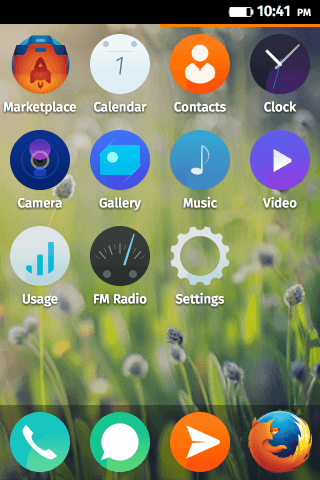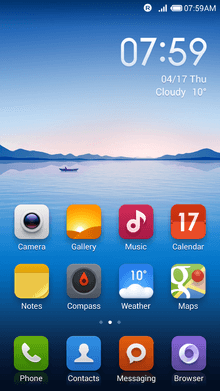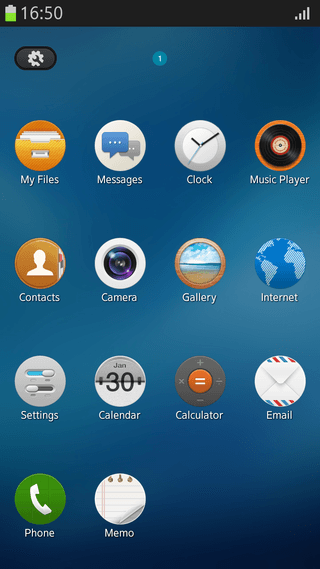When it comes to the software that runs on mobile phones and tablets, two names stand out above the rest: Android and iOS, the most prominent mobile operating systems currently available.
iOS is developed by Apple and only runs on specific Apple hardware, like the iPhone and iPad. Android, on the other hand, is developed by Google and can be found on a very wide variety of devices from different manufacturers. Due to the fact that Google makes the code for much of Android freely available, anyone from hobbyists to large corporations can build on top of the Android platform.
While both of these pieces of software are hugely popular, well designed, usable and adored by their respective fans, they are not the only mobile operating systems out there. Here are a few lesser-known mobile platforms that might be worth a deeper look.
Ubuntu for Android
In the desktop computing world, Canonical’s Ubuntu Linux has gained significant traction as a free alternative to OSX and Windows, and they are now poised to break into the phone market with Ubuntu for Android.
Ubuntu for Android utilizes Android’s kernel (a core component of the OS) and its drivers, but promises to unleash the true power of multicore devices by accessing the hardware more directly than Android does. Canonical, the commercial entity behind Ubuntu, wants to bridge the gap between your phone and your laptop by bringing a full range of desktop applications to the mobile market, with a focus on true multitasking. Ultimately, they want their users to plug their phones into docks, which provides a laptop-like experience, allowing seamless transitions between work, play and on-the-go use of your handheld device.
Phones running Ubuntu’s mobile OS should be released sometime this year, so keep on the lookout.
Firefox OS
Mozilla, makers of the popular Firefox web browser, are also throwing their hat in the ring and developing an operating system for the mobile market. Firefox OS is Linux-based, like Android, but seeks to differentiate itself by focusing more on utilizing open standards and community supported software as opposed to closed source, proprietary tools.
Firefox OS offers what they are calling a truly adaptive phone experience. This means that your device will anticipate your needs and instantly deliver the information that you want from a variety of sources, including useful local content.
Firefox OS is currently only available on a handful of devices, but you can expect to see that expand in the near future.
Sailfish OS
Developed by Finnish startup Jolla, Sailfish OS is a Linux-based mobile operating system that utilizes Mer, the successor to Nokia’s short-lived MeeGo operating system. The user interface is gesture based, with the a focus on multitasking.
One distinct advantage that Sailfish OS boasts over the competition is a huge catalog of apps and software, as it is compatible with software made for Android, Linux, Mer/MeeGo and anything written in HTML5.Phones featuring Sailfish OS are currently available in the EU, Switzerland and Norway, at Jolla.com
MIUI
MIUI (pronounced “Me-You-I”) is a heavily modified version of the Android OS, made and maintained by Xiaomi Tech, a Chinese electronics company. MIUI offers a higher level of customization than stock Android, allowing users to apply custom themes, lock screens, fonts and more.
MIUI has built-in network monitoring, spam and virus protection, a data backup app and other useful and unique features. The UI is somewhat similar to that of the iPhone, with its glossy icons and smooth screen transitions.To get MIUI, you must install it yourself on a compatible Android device, after first rooting and unlocking your phone. The process to accomplish this varies greatly by device and may very well void your warranty, so do your homework. For a list of compatible devices, head on over to MIUI’s website.
Tizen
Tizen is an operating system based on the Linux kernel, and is designed specifically for embedded devices including smartphones, tablets, TVs, laptops and cameras. It aims to offer a consistent user experience across a wide range of devices. Tizen is developed by the Linux Foundation, which is governed by such tech industry giants as Samsung, Intel and others.
While the development of Tizen has been plagued by setbacks and delays, having been declared dead several times over the years, it was just announced last month that the upcoming Samsung Z will ship with Tizen instead of Android. The Z will be released in Russia in the third quarter of this year, with plans to bring it to further markets shortly thereafter.
This is certainly an exciting time in the smartphone world, as competition from new mobile OS makers leads to innovation and, ultimately, an even richer phone experience for end users. What new features you would like to see on your mobile device? Let us know in the comments.
Featured photo credit: Alfredo Cáceres / Phone Users via flic.kr















































